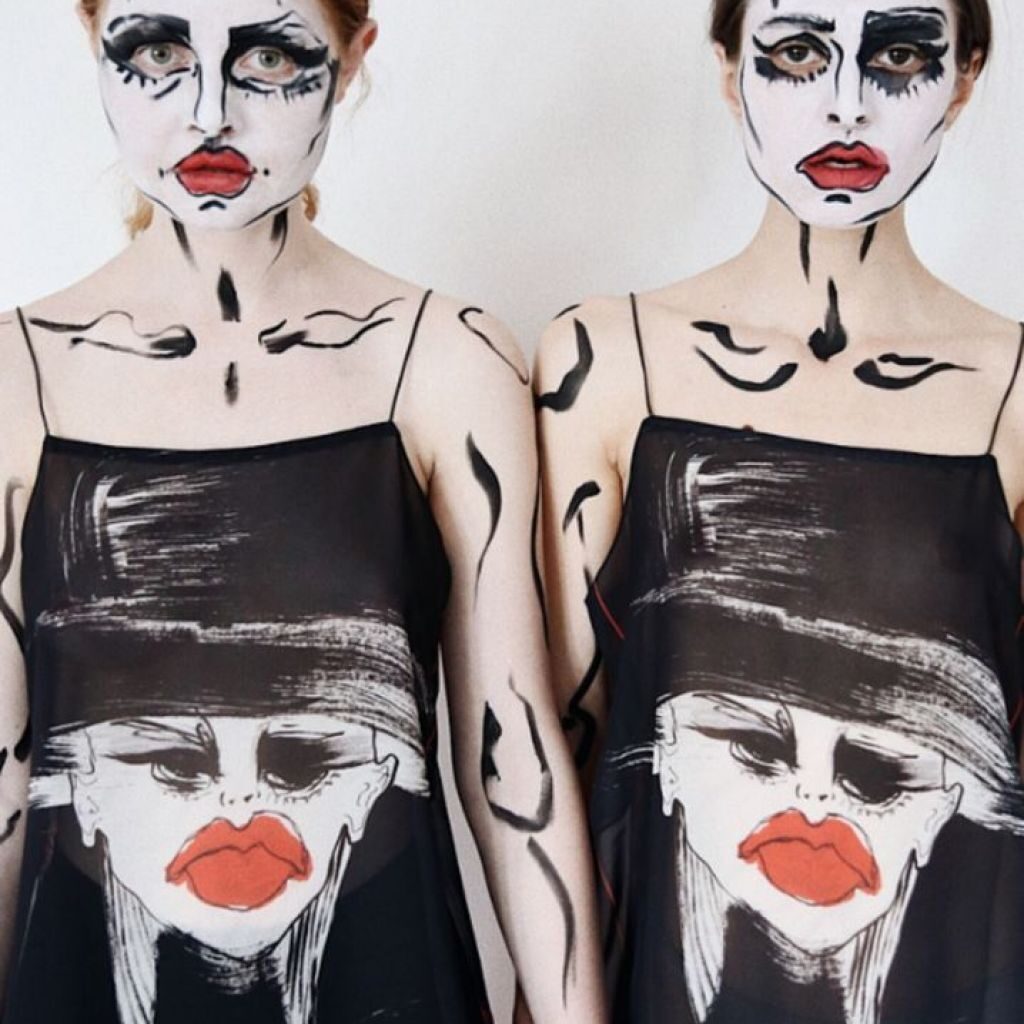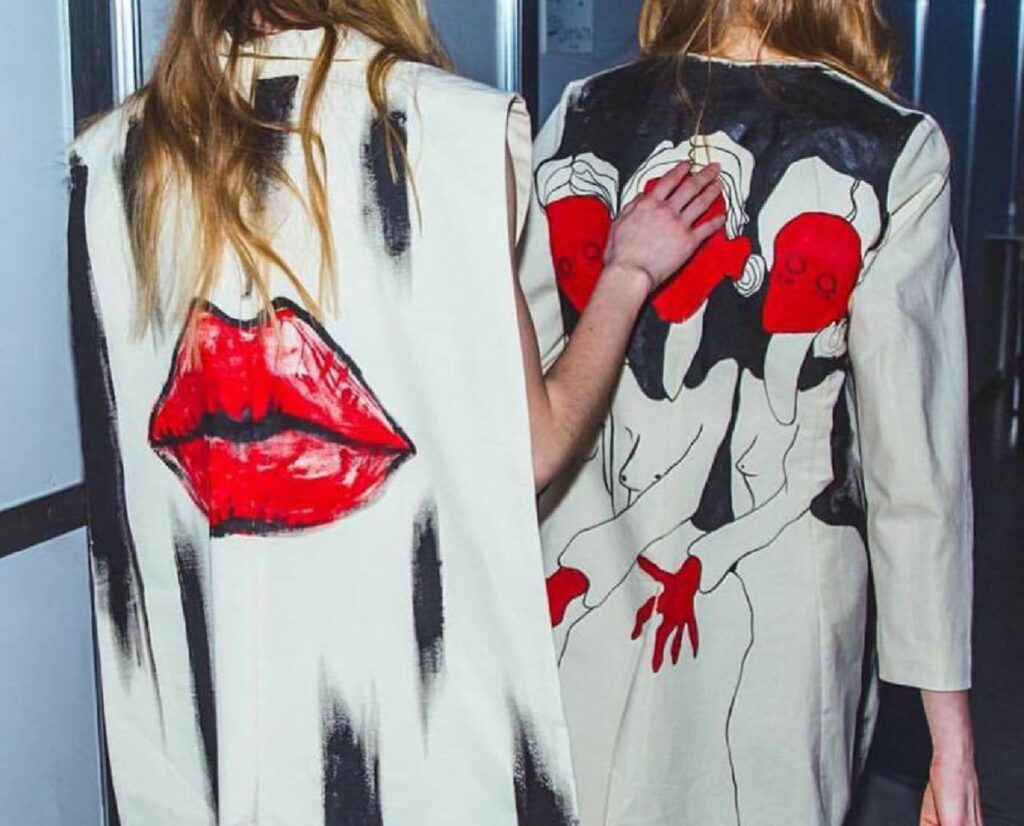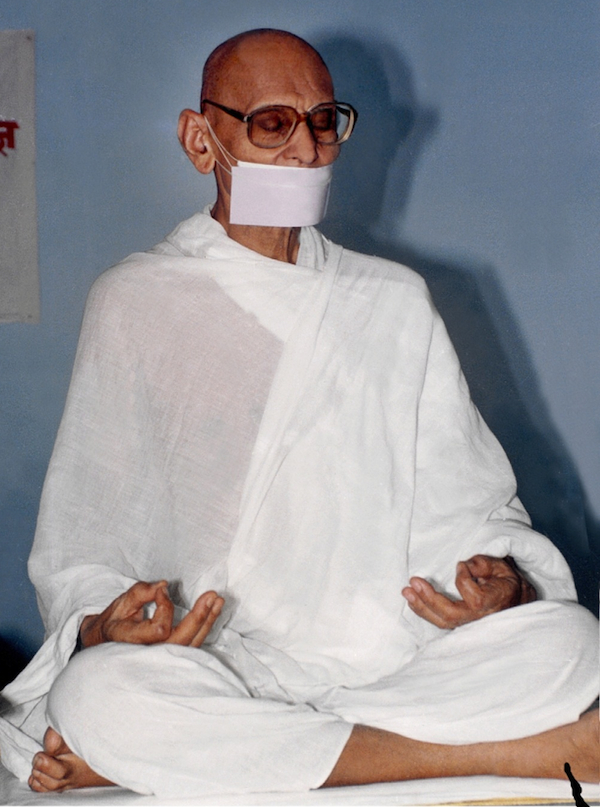The joy of dressing is an art.
John Galliano.
Fashion is far more than just clothing — it is a form of expression, a reflection of personal beliefs, cultural affiliations, emotional states, and psychological identities. At its core, fashion communicates who we are, where we come from, what we stand for, and how we wish to be perceived. Yet despite its immense influence, the fashion industry is often dismissed as shallow or purely materialistic. But if fashion is just fabric, why does it impact our lives so profoundly? What does fashion really have to do with identity?


Fashion as a Communicator of Identity
Identity is the framework through which we understand ourselves and our place in the world. It’s a multifaceted concept, encompassing our values, roles, heritage, emotions, aspirations, and sense of belonging.
Fashion, as one of the most immediate and visible forms of self-expression, bridges the internal self with the external world. It allows us to declare who we are — or who we want to become — through what we wear. Whether consciously or subconsciously, our clothing choices send signals about our lifestyle, mood, politics, affiliations, and personal history.
Fashion in Uniforms: Signalling Belonging and Duty
Uniforms are perhaps the most literal example of fashion intersecting with identity. They symbolise duty, discipline, and group belonging. Military personnel, police officers, and healthcare professionals wear attire that not only serves functional purposes, such as protection or practicality, but also represents unity, authority, and trust. Uniforms become a badge of accountability. Even in schools and corporate offices, uniforms are used to reduce distractions, eliminate socio-economic disparities, and cultivate a sense of equal identity among members. These visual markers communicate official, national, or professional identity, aligning individuals with the larger goals and values of the organisation they represent.



Fashion in Spirituality: Clothing as Sacred Symbolism
Spiritual identity has long been expressed through clothing, often deeply rooted in tradition and symbolism. Colour, fabric, and style are carefully chosen to signify religious beliefs, virtues, and rituals. For example:
- Jainism embraces white as a symbol of non-violence and purity.
- Roman Catholicism reserves white for the Pope during formal occasions, representing spiritual authority.
- Mormonism encourages adherents to wear white when entering temples, signifying sanctity and reverence.
- Hasidic Judaism and Eastern Christianity utilise black attire to reflect humility, modesty, and commitment to tradition.
These dress codes serve as visible affirmations of spiritual dedication. They help form a collective religious identity while also drawing boundaries between sacred and secular life. Fashion in this context is not about aesthetics, but about values, obedience, and belonging to a greater divine order.





Fashion and Economic Identity: A Double-Edged Sword
Fashion often mirrors economic identity. The type of garments we wear, their price points, and the brands we choose (or reject) speak volumes about our socio-economic position. For some, designer labels are markers of affluence, success, or aspiration. For others, minimal or thrifted clothing is a result of necessity or, alternatively, a deliberate choice to reject materialism.
Still, this relationship is nuanced. Many successful individuals are known for their understated fashion choices, choosing simplicity, comfort, or functionality over opulence. Conversely, individuals with limited means often engage creatively with fashion, using it to express joy, resistance, or dreams. In educational settings, uniforms attempt to flatten these economic divides, promoting focus and equality. Fashion, therefore, both reveals and challenges class structures, allowing some to conform while enabling others to subvert.
Enclothed Cognition: The Psychology of Dressing
Scientific research has uncovered an intriguing phenomenon called Enclothed Cognition — the idea that what we wear affects how we feel, think, and behave. Clothes are not neutral. They carry meanings and memories, and they can activate psychological changes. Wearing a formal suit might instil confidence and focus; donning a uniform might promote responsibility; slipping into casual clothes may foster relaxation.
What we wear influences not just how others perceive us, but how we perceive ourselves. From self-worth to social confidence, the right outfit can elevate our mood, enhance performance, and even shift our posture or body language. Our fashion identity, then, becomes a continuous interplay between internal emotions and external presentation — a dynamic space where mood, belief, and image coalesce.
Personal Identity and Fashion: A Creative Dialogue
Fashion serves as a canvas for personal storytelling. From colour palettes to fabric choices, every detail can carry psychological and cultural weight. People often use fashion to project or hide aspects of themselves, to conform or rebel, to heal or celebrate. It becomes a tool for navigating identity in a complex world.
The intersection between fashion, religion, and culture is especially telling. Religious dress codes often emphasise modesty and conformity, whereas the fashion industry thrives on originality, creativity, and self-expression. Designers, artists, and creatives pour their interpretations of human experience into garments, from heartbreak and resilience to cultural pride and activism. Through fashion, people express what words often cannot.
Recreating Identity: Fashion as a Liberating Tool
Fashion is more than tradition or trend; it’s a revolution of identity. It invites people to experiment, push boundaries, and defy roles assigned at birth. Fashion has been at the forefront of dialogues on gender, race, sexuality, and body politics. Through clothing, marginalised communities, such as LGBTQ+ individuals, challenge binary notions and celebrate fluidity. Fashion becomes a form of protest, a voice against erasure, and a tool for visibility.
Every outfit becomes an act of claiming space — a declaration that says, “This is who I am.” At the same time, many people enjoy changing how they present themselves, either to match personal evolution or simply to explore a different version of self. Whether through genderless fashion, bold prints, or minimalist designs, fashion enables people to redefine their identity on their own terms.

Is Fashion Misunderstood?
Society often downplays fashion’s importance, claiming it to be frivolous or vain. And yet, paradoxically, it enforces stringent norms on what people should or shouldn’t wear. From school dress codes to religious restrictions and gender-based expectations, clothing becomes a battleground for control, morality, and conformity.
If fashion were meaningless, why would it spark such intense debates? Why would it provoke so many feelings of pride, shame, judgment, or freedom? Clearly, fashion is deeply embedded in how we construct identity, power, and belonging.
Fashion’s Deeper Purpose
Today, the fashion industry faces criticism — fast fashion, overconsumption, and environmental harm. Yet, at its origin, fashion was a space for Authenticity, Artistic Rebellion, Human Expression, and more. It has always had the capacity to reshape how we think and feel about ourselves and others. It can amplify marginalised voices, preserve cultural heritage, and disrupt dominant narratives.
Fashion is a form of social commentary. It carries the power to connect across cultures, generations, and ideologies, while also providing the space to stand apart. It recognises that identity is not fixed but fluid, evolving through time, experience, and discovery.
Clothing as Freedom
The way we dress is not merely about utility — it is a powerful medium for communication, self-definition, and liberation. In every thread and stitch lies a choice, a voice, a declaration. Fashion becomes the language through which we narrate who we are, what we value, and how we see the world.
To wear what we want without judgment is not just a personal preference — it’s a human right. When society imposes taboos on clothing, it denies individuals the freedom to live authentically. Clothing should not be policed; it should be protected as a fundamental tool of expression.
Our fashion identity reflects more than our aesthetics. It reflects our emotional truth, cultural memory, social aspirations, and psychological depth. Clothing allows us to explore, challenge, and celebrate our uniqueness. It enables us to experiment with roles, embrace contradictions, and find comfort in our complexity.
To clothe oneself freely is to say: I exist, I feel, I belong, I resist, I evolve.
Let fashion be more than fabric. Let it be a space of belonging, a site of resistance, and a canvas of the soul.
Fashion is not just about style — it is about identity, freedom, and being fully alive.
